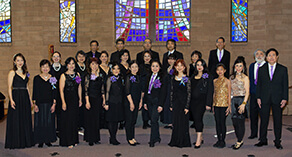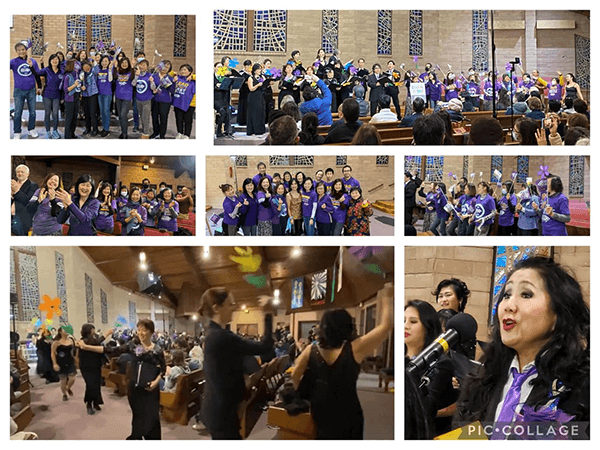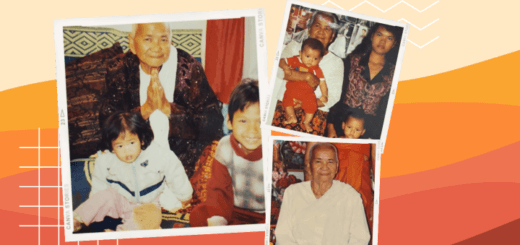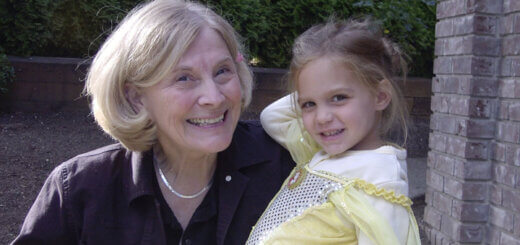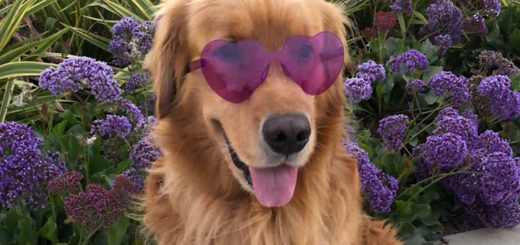Silicon Valley choir supports Japanese community through song
By Chaka Morrison
Keiko Kagawa is the music director of COSMO, a primarily Japanese singing group. In 2022, she was introduced to the Alzheimer’s Association® through a member of her choir. Since then, Keiko and her choir have helped bring awareness of the disease to the Japanese community through song.
The COSMO Choir
Keiko Kagawa is the music director of COSMO, a choir based out of Silicon Valley. Originally an all-Japanese group created by Japanese businessmen and their families 25 years ago, the group now welcomes all voices.
The choir sings in several languages including French, German, Latin, Japanese, Chinese and Spanish with coverage of multiple genres. Some of the members fly between the U.S. and Japan to their sister group, in Tokyo.
Getting involved with the Alzheimer’s Association
In 2011, one of Keiko’s choir members, Jen Tsao found out that her father-in-law had Alzheimer’s disease. Jen’s husband, Alex, is a national board member for the Alzheimer’s Association. However, it wasn’t until 2022 that Jen went to Keiko and asked if COSMO could support the Alzheimer’s Association.
Jen reached out to the local chapter in San Jose to ask if there was a volunteer opportunity for the choir. COSMO was then asked to donate their time on a Saturday to be one of the musical performances found on the route for the Walk to End Alzheimer’s® in Silicon Valley.
Held annually, Walk to End Alzheimer’s is the largest fundraiser to raise awareness for Alzheimer’s care and support. During this time participants gather, dedicating their time and effort to honor their loved ones and show their commitment to ending Alzheimer’s disease. Participants carry a flower that represents their connection to the disease.
During the event last year, Keiko recognized the emotional effects of the disease on others, even those who do not have a direct connection to Alzheimer’s disease. The overall feeling of Walk was very moving to her. “We know what the cause is, why we’re there, all the families are walking. Some people are in a wheelchair, they have purpose.”
A song for dementia
In March of 2023, COSMO held their annual concert and invited the Alzheimer’s Association to attend. Through the support of the JA Community Foundation grant, the Association was able to distribute informational brochures on the disease as well as resources available to the Japanese community. That night, COSMO dedicated a Japanese song about wanting to be free and in the wind to the Alzheimer’s Association.
Keiko admits that COSMO doesn’t usually ask other organizations to come to their performances and this was a first for them. However, while reminiscing, Keiko says, “My small group, we have passion for the cause. I really believe through music, dancing and these brief moments once a year, we gather around in our concert and really release our concerns that everyone might have to enjoy eachothers company.”
She adds, at COSMO’s concerts “Your life has to be positive energy and beautiful supportive and helpful that we should share and not the bad negative vibes.”
Alzheimer’s in the Asian American and Pacific Islander community
Dementia is primarily a disease of older age. Approximately, 1 out of 9 Americans who are 65+ years are living with Alzheimer’s. The prevalence of the disease within this population is expected to rise due to the risk of Alzheimer’s increasing with age.
AAPI is the fastest growing minority group in the U.S. and the AAPI older adult population is projected to increase by 145%. However, AAPIs don’t report dementia symptoms to medical providers. This places them at risk for a diagnosis in the later stages of the disease.
According to the Alzheimer’s Association Alzheimer’s Disease 2021 Facts and Figures special report, nearly half of Asian Americans say that they are concerned about developing Alzheimer’s or dementia. At the same time more than half believe that significant loss of memory or cognitive ability is a normal part of aging.
Because of this, it is important to provide effective resources to lessen the cultural barriers to care for AAPIs. Whether it’s due to cultural ways of thinking or beliefs, the stigma of receiving the diagnosis or lack of follow up services and informational materials in their language.
Doing her part
While Keiko doesn’t have a personal connection to Alzheimer’s disease, as a classical singer, she has always had a curiosity in how the brain functions. She believes the Japanese community lives longer and healthier lifestyles.
While that may be true, she also understands that it is important to spread the word and learn what the Alzheimer’s Association is doing to address health disparities for AAPIs living with Alzheimer’s or other dementias.
In Keiko’s eyes, the end of life with Alzheimer’s is just is not fair when life is so beautiful. With words of encouragement she says, “Why not live life right now and prepare.”
For more information on resources in the Asian American and Pacific Islander community visit alz.org/asianamericans.





